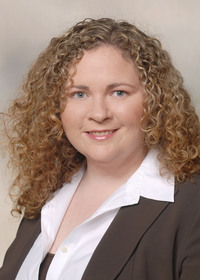Information Possibly Outdated
The information presented on this page was originally released on September 9, 2005. It may not be outdated, but please search our site for more current information. If you plan to quote or reference this information in a publication, please check with the Extension specialist or author before proceeding.
Extension computers help reunite families
MISSISSIPPI STATE -- Simple computers with Internet access are easing part of the emotional burden of evacuees desperate to reconnect with family.
When Hurricane Katrina hit the state with its high winds and devastating water, much of the communication infrastructure in the lower one-third of the state was lost in a few hours. Hundreds of lives were also lost in that brief span.
Those who got out immediately wanted to find out who and what survived. Web sites such as http://www.gulfcoastnews.com became the only source of information for many people. Those without homes or electricity, however, couldn't access these sites.
Donna Cliett, Clay County director with the Mississippi State University Extension Service, saw a new way to help survivors in addition to volunteering at the local shelter and doing what she could to meet the physical needs of evacuees.
"We had talked at the office about how we could use our public-access computer to help those in our local Red Cross shelter and had posted a notice about it in the shelter," Cliett said. "Then we heard about the Gulf Coast News Web site, and that really kick started us. Almost immediately, we were able to help a family find someone they were looking for."
Cliett estimated that in a week and a half her office helped about 50 families find someone. Not only are the Extension Service employees helping, Cliett even recruited her family.
"My daughter helped reunite one family, and they told her she was a God-sent angel," Cliett said.
She said many of the people they are locating are coming to the shelter to take their family members home to live with them. Cliett knows of people staying in the West Point shelter who have gone to live in Florida, New York and West Virginia.
Cliett told the story of one couple who got separated on the Coast. He had just returned home from triple bypass surgery, and in the panic of the storm, had stitches come loose. He was taken to a hospital, and she ended up in West Point. Not only were Cliett and her staff able to reunite the couple, they contacted an out-of-state son who came to take the family to his home.
Virgil Culver, interim assistant director of county programs for the Extension Service, said Extension personnel throughout the state are just trying to do their part to help the storm victims recover.
"Where our offices are functional, we are making those public access computers available. Many of our agents are using personal resources to help others," Culver said.
The Extension Service has an office in each of the state's 82 counties, and in each office is an Internet-enabled, public-access computer supplied to meet a variety of educational purposes. Evacuees across the state can come to the local Extension office and use the computer or submit their information to an Extension staffer for someone else to look up.
"The computers have been there about a year," said Geoff Guyton, Extension computer systems analyst. "We put a computer in every office to make it easier for the public to access our website, MSUcares.com, and to use other online Mississippi State University resources."
As hurricane recovery efforts continue statewide, many people are turning to these public access computers to get information on loved ones, disaster services and more. Extension offices stayed open over the Labor Day holiday, and many are keeping offices open beyond normal business hours for the convenience of those displaced by the storm.
The MSU Extension Service offers a wealth of recovery-related information online at MSUcares.com.



